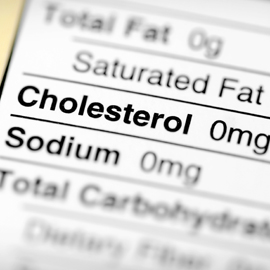 Many sufferers of obesity battle other comorbid conditions like high cholesterol on a daily basis. High cholesterol combined with obesity can spell disaster for your heart health, so it’s important to know what causes this condition and what you can do to treat it before it leads to more serious health concerns.
Many sufferers of obesity battle other comorbid conditions like high cholesterol on a daily basis. High cholesterol combined with obesity can spell disaster for your heart health, so it’s important to know what causes this condition and what you can do to treat it before it leads to more serious health concerns.
A lot of people experience beneficial changes in their cholesterol levels after Lap Band surgery, gastric sleeve surgery or gastric bypass surgery, but it is up to you to follow a healthier diet and engage in the recommended amount of activity to improve your heart health and fight off the buildup of cholesterol in your body.
Cholesterol: The Good and the Bad
Cholesterol is found in the fats or lipids in your blood and is needed for your body to continue building healthy cells. High cholesterol causes fatty deposits in your blood vessels to develop, making it difficult for sufficient blood to flow freely through your arteries. As a result, your heart may not receive enough oxygen-rich blood which can increase risk of heart attack.
Having too much “bad cholesterol” or LDL and too little “good cholesterol” or HDL is one of the signs that indicate you may be at risk for metabolic syndrome. Bad cholesterol works to carry cholesterol from the liver to the rest of the body, while good cholesterol works to remove this bad cholesterol from blood and transport it back to the liver where it can be disposed of as waste. Metabolic syndrome is a cluster of risk factors that all increase your chances of heart disease, stroke or diabetes. Many people suffering from obesity are at risk for developing metabolic syndrome, but there are ways to control it through lifestyle changes.
Causes of High Cholesterol You Can Change
- Your Weight – Carrying excess amounts of unhealthy weight increases your triglycerides while decreasing your HDL or “good” cholesterol. As mentioned above, having low amounts of HDL can contribute to the development of metabolic syndrome which can lead to grave consequences where your health is concerned.
- Your Diet – Having a diet high in saturated fat can cause high cholesterol. Unhealthy saturated fats can be found in beef, pork, veal, butter, cheese and milk. Most unhealthy snacks such as cookies, crackers and chips also contain high amounts of unhealthy saturated fat.
- Your Fitness Level – Leading a sedentary lifestyle can greatly increase LDL or “bad” cholesterol on top of decreasing your “good cholesterol.”
Causes of High Cholesterol You Can’t Change
- Your Family History – If members of your family are prone to high cholesterol you may also be at risk.
- Your Age – Your cholesterol levels begin to naturally rise after you reach age 20.
Keep bad cholesterol in check with these health tips:
- Increase your physical activity level to help lower levels of bad cholesterol. Try to strive for at least 15 minutes a day of moderate-intensity activity.
- Eat healthier fresh fruits and vegetables instead of unhealthy foods high in saturated fats that can lead to clogged arteries.
- Quit smoking, as this greatly increases the risk of heart disease and stroke.
- Try to lose excess unhealthy weight to help lower your bad cholesterol levels. This can be done by maintaining a healthy diet balanced with proper daily exercise. For those who are severely overweight or obese, medical intervention with weight loss surgery may be more effective in facilitating weight loss.
Don’t let high cholesterol compromise your well-being—try some of these health tips to help reduce “bad” cholesterol and improve your overall health. If you’re concerned about your cholesterol levels, speak with your bariatric surgeon about how to help improve your condition.
